distribution
Latest
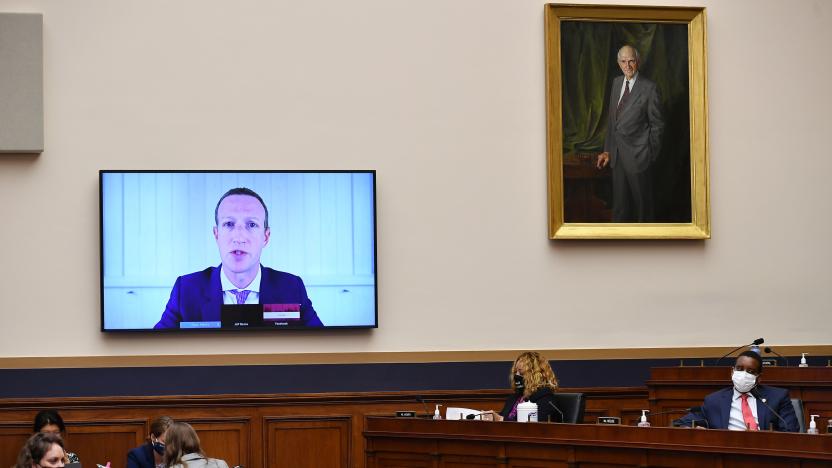
Senate Republicans vote to subpoena Facebook and Twitter CEOs
Senate Republicans voted to subpoena Facebook and Twitter CEOs to testify about their alleged blocking of a controversial New York Post article.
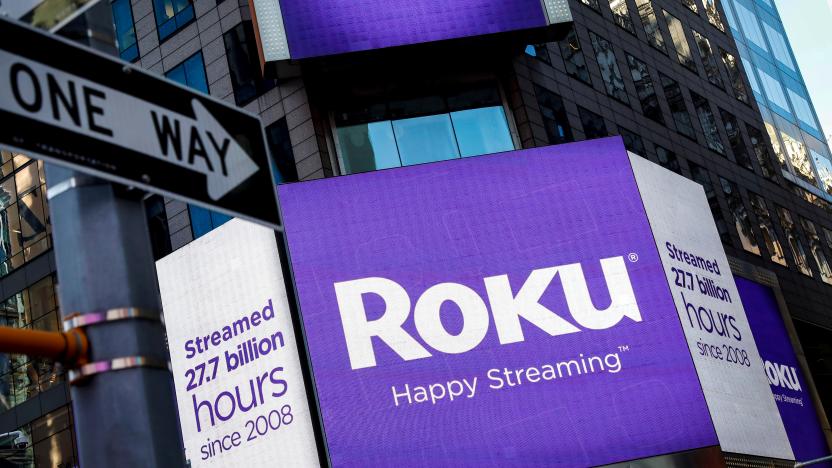
Comcast may force Roku to drop some NBCUniversal channels
Roku may lose NBCUniversal channels as early as this weekend.
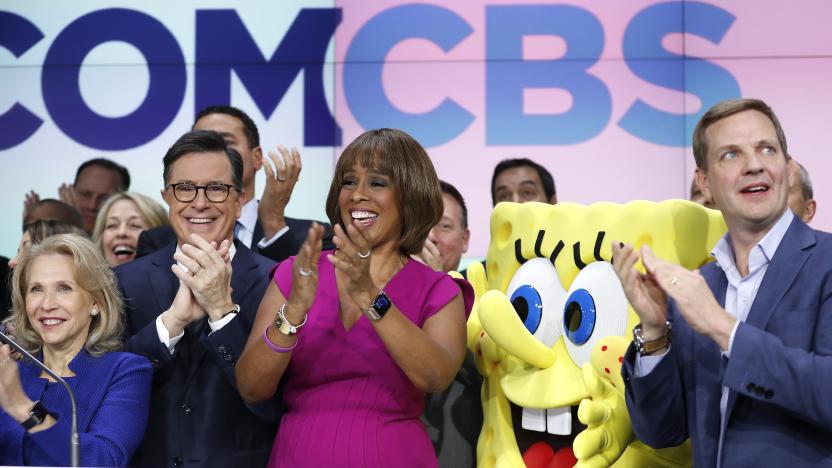
YouTube TV is adding 14 ViacomCBS channels to its lineup
Thanks to an expanded, multi-year distribution agreement between Google and ViacomCBS, YouTube TV will add another 14 channels.
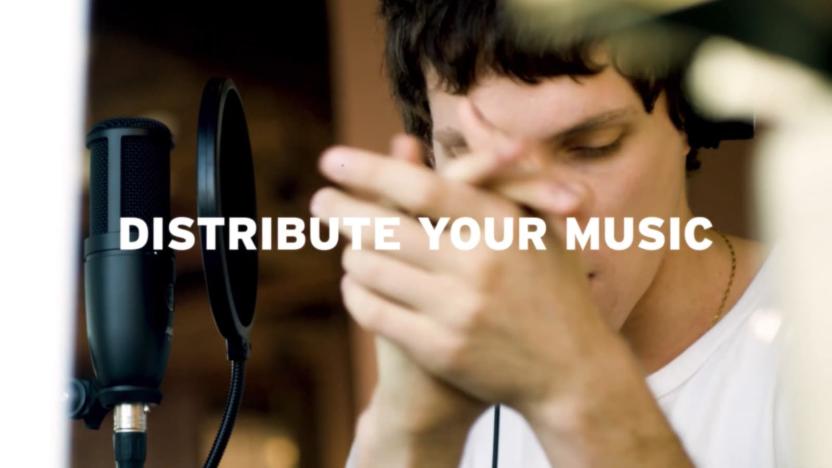
SoundCloud lets artists distribute music to Spotify and Apple Music
SoundCloud is helping artists distribute uploaded music to other services, including Spotify, Apple Music, YouTube Music, Amazon Music, Tidal, Instagram, Pandora and even Napster. The Premier distribution tool will be available in open beta at no extra cost for eligible Pro and Pro Unlimited subscribers. SoundCloud won't take a cut of the earnings artists make from other platforms, and it pledged to streamline payments for them. Musicians will also keep all of the rights to their work.

Watching 'Annihilation' at home versus the cinema
Alex Garland wrote 28 Days Later, Sunshine and Dredd, establishing his bona fides as a master of blending horror and mind-bending sci-fi. He then wrote and directed Ex Machina, which propelled him into an elite fraternity of directors producing smart, arty films that stick with you long after you leave the theater. His latest film, Annihilation, was set to be his big mainstream breakthrough, but it will be released theatrically only in the US, Canada and China. In the rest of the world, the film will play on Netflix. Does that mean everyone in the rest of the world is losing out by having to watch it in the comfort of their own homes? We asked two of our editors -- one in New York and one in London -- to report their respective experiences.
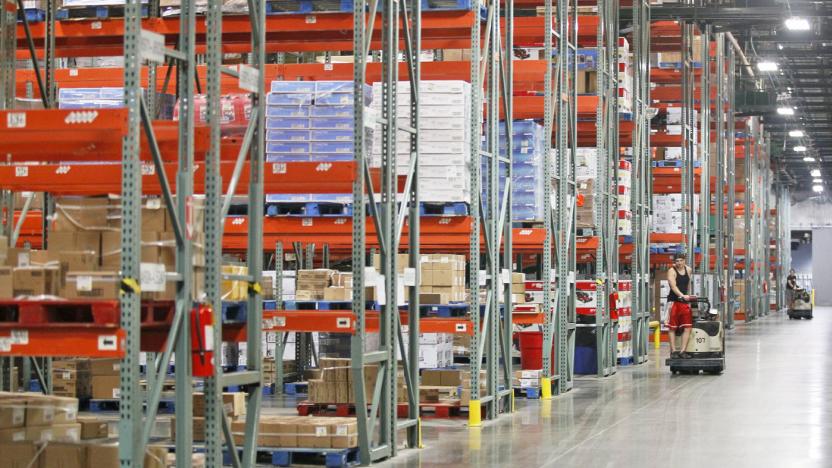
Walmart trials stock-checking drones in its warehouses
Few jobs are more monotonous than counting inventory all day, every day. Maybe that's why Walmart is thinking about farming the job out to drones. The retailer is running tests to see if camera equipped drones can help speed up inventory counts in its distribution centers. So far, results are promising -- during a recent demo of the technology, Walmart said that the drones could potentially do a month's worth of human labor in a single day.

China to restrict game sales based on content like gambling, violence
Since China temporarily lifted its ban on foreign video game consoles in January, it was a matter of time before the government offered new rules to regulate console and game distribution. According to a Shanghai government release translated by Games in Asia, those rules will dictate the kind of content that won't be allowed to be sold in the country, such gambiling-related game features. Additionally, anything deemed threatening to "China's national unity, sovereignty, or territorial integrity" and content that "instigates racial/ethnic hatred" won't be distributable in the country. Games also may not promote "obscenity, drug use, violence or gambling," as well as cults and superstitions. Approved games cannot violate China's constitution, nor can they harm its culture, traditions and public ethics. The policies state that foreign companies must work with a local company to produce consoles within the Shanghai Free Trade Zone, such as Sony's PlayStation 4 or Microsoft's Xbox One, the latter of which arrived in 26 more regions just last month. Plus, games in China must go through an approval process with Shanghai's culture department, which will take "no longer than 20 days." This applies to game updates with new content, such as DLC, even if the game itself was already approved. Lastly, all console games will be required to have a simplified Chinese version, so publishers won't be able to simply re-sell Hong Kong and Taiwan versions of their games. [Image: Microsoft]

Get Even, Dead Synchronicity among 75 games Greenlit for Steam
Steam's Greenlight community gave 75 more games the thumbs-up for distribution on the PC platform this week, adding a few familiar titles to the mix. Among the games that can begin start selling on Steam is Get Even, a first-person shooter from Polish developer The Farm 51. Unlike other first-person games, players jump into the memories of Get Even's main characters to make decisions that impact their personality traits as the game's story progresses. The developer spoke at length in March on films and games that explore players' perceptions of reality, which the Painkiller: Hell and Damnation developer set as a goal. Other games greenlit for distribution include pretend dogfighter Cult of the Wind, dystopian 2D point-and-click adventure game Dead Synchronicity: Tomorrow comes Today and Pivvot, which brings minimalistic arcade-style action to Steam. Pivvot achieved over 2.65 million downloads on iOS and Android and comes from Whitaker Trebella, a Chicago-based developer that shifted from music composition to programming in 2010; though he still crafted tunes for more recent games like Nimble Quest and Super Stickman Golf 2. [Image: The Farm 51]

Double Fine to publish indie games, starting with Escape Goat 2
Double Fine may be known for creating games like Psychonauts, Brutal Legend and Broken Age, but it's expanding its efforts to add indie game publishing to its repertoire. Its first act as an indie publisher is to provide "promotional assistance and distribution" for MagicalTimeBean's Escape Goat 2, COO Justin Bailey told Game Informer. "Our goal is to help indies build their own community and empower them with the knowledge and tools they need to succeed on their own," Bailey said, adding that multiple indie developers have approached Double Fine to ask for publishing assistance. "They all had a unique request and that's where we started to see there was a real need for the knowledge we've gained over the last 14 years on how to prototype, fund, develop and publish our own games." Double Fine's publishing ambitions boil down to the efforts of two individuals: Bailey and senior publishing manager Greg Rice, who will offer advice for crowdfunding hopefuls as well as development feedback, platform porting advice and promotional assistance. "We're open to working with each developer and figuring out how we can help make them successful," Bailey added. Double Fine recently teamed up with MagicalTimeBean to create a quirky promotional video for Escape Goat 2. The game launched yesterday on PC, Mac and Linux via Steam, GOG and the Humble Store for $10. [Image: MagicalTimeBean]

Paramount now releases movies only in digital form
While it's no secret that film-based movie distribution won't last much longer in the US, the big Hollywood studios haven't officially completed their transition to digital. However, one of them may have quietly made that leap -- sources for the LA Times claim that Paramount is the first large studio to send its major movies (not just smaller flicks) to American theaters solely in digital form. Anchorman 2 was reportedly the company's last high-profile analog release, while The Wolf of Wall Street was the first to go all-digital. Paramount hasn't commented on the apparent leak. If the report is accurate, though, the 8 percent of US theaters without digital equipment now have little choice but to upgrade if they want to offer the same selection as most of their peers.

China drafting new rules for consoles, disallows products 'hostile to China'
Roughly one week after China temporarily lifted its ban on foreign-made video game consoles, the government is looking to draft new rules for regulation, Bloomberg reported. Among the principles that govern the distribution of game consoles under the rules of the free trade zone, head of China's Ministry of Culture Cai Wu said "things that are hostile to China, or not in conformity with the outlook of China's government, won't be allowed." "We want to open the window a crack to get some fresh air, but we still need a screen to block the flies and mosquitoes," Wu added. Whether that indicates further regulation in China on the distribution of games based on their content is unknown. China started its plans last year to revoke the console ban, which began in 2000. Following the ban's temporary suspension last week, the stock prices for both Sony and Nintendo saw small increases.

Rovio teams up with Sony for the Angry Birds movie, coming July 2016
Rovio has announced, via tweet and then by news release, that it has lined up a deal and a date with Sony Pictures to distribute the upcoming Angry Birds movie. Rovio's been working on putting the frustrated fowl into a motion picture for a while, but this announcement makes it more or less a done deal -- all that needs to happen is that it gets made. Rovio says the movie will be out in theaters on July 1, 2016. The film will be in 3D (and animated, of course). It'll be produced by Despicable Me producer John Cohen, along with David Maisel. There's no director or writer yet announced, but this isn't exactly rocket science: Odds are that there will be green pigs stealing the birds' eggs, and the birds will have to team up together in a heartwarming way to get revenge. In fact, Rovio, if you need a hand, I could punch out a treatment for you. Just let me know.

The iTunes influence, part three: Art in the age of digital disruption
"What happened is way worse for musicians. It has forced musicians to be marketers." John McVey, producer, Coupe Studios "I fear that in general the only musicians able to create a truly independent and successful career are those who had one before the industry changed, who had the fan base in place to enable them to continue independently of the record labels." That's Peter Owen, an independent composer and producer. He is one of many musicians who feel that the internet has made the business of creativity more challenging. Parts one and two of this series surveyed how iTunes and MP3 catalyzed the digital music movement for labels and consumers. The effect of the internet on musicians is less recognized. In one way, musicians have benefited similarly to consumers. While consumers have gained amazing access to music, musicians have acquired unprecedented access to listeners. So it's the promised land for musicians, right? Not exactly. For many creators whose careers span the before-and-after of digital music, there is a crushing sense that the grass isn't greener after all.

TestFlight hits 300,000 iOS apps uploaded, going Android compatible
I've used the TestFlight digital testing and distribution system for mobile apps a few times, both as an end-user (when companies want to send me their apps to try out), and as a developer (when I've passed an app I'm working on to someone else for testing). Apple's app distribution and provisioning system can be tough to figure out, but TestFlight makes it all much easier, with a very snazzy web interface, and the ability to install a preview app on a non-jailbroken device with just a few taps on the screen. Now, TestFlight is becoming even more useful for developers on all platforms, as the service has announced compatibility with Android phones. You might argue that doesn't affect us here on the iOS side of the fence, but it does show just how big TestFlight has gotten. The company has announced that it's hosting more than 300,000 iOS apps already, with one-third of those uploaded in just the past 90 days. Its client base expands beyond independent developers. TestFlight tells TUAW it has hosted builds for big companies like Adobe, Disney, Spotify and Tumblr. We occasionally heard rumors that Apple might want to buy TestFlight, considering how great the company is at distributing mobile apps. I'm not sure if this Android announcement helps or hurts that line of thinking. On the one hand, Apple might want to pick up TestFlight just to keep the service iOS exclusive, but of course any experience on Android would become generally useless if an acquisition does happen. I think TestFlight will stay where it is. The service is very helpful and seems to be booming, so it seems unlikely that Apple will swoop in and acquire it for the official app ecosystem.

Apple's place in the next generation of gaming
Sony is holding an event this Wednesday in New York, where the company is expected to announce the next version of its popular PlayStation console, essentially kicking off the next generation of video gaming (Nintendo actually did this last year with the launch of its Wii U console, but sales of that device haven't done so well, and Mario's Japanese overlords tend to do their own thing, no matter what Microsoft and Sony do). So this TechCrunch editorial about Apple entering the gaming space for real comes at a very interesting time. Sony's about to announce a new console, and Microsoft will presumably do the same soon after. Where's Apple in all of this? A full five years ago, I wrote this post, talking about five things Apple could do to bring gamers back to the platform. And if I may say so myself, many of those directions were followed. Apple essentially has a huge game store in the App Store, and not only has it created (as I said back then) a solid revenue system as well as a promotion and distribution channel, but Apple's done so in a way that helps and grows developers as well. Apple did indeed focus on casual games in the App Store, to the point that the vast majority of the top-grossing and downloaded apps are casual games. Apple made its hardware faster, so that you can basically run any PC game on any Mac these days, either with native ports in the Mac App Store (another place where games generally rule), or with emulation and Boot Camp. And Apple has done its best to provide a fairly unified gaming experience with Game Center -- on either iOS or the Mac, Apple uses that service to both reward gamers and promote other titles. I think that service could be used even more effectively, but that's a topic for another post. However, the one thing that Apple hasn't done from that post I wrote five years ago is this: provide gaming hardware. Apple has created a huge platform with iOS, obviously, and game developers of all stripes have worked very hard to create titles that not only worked on a touchscreen or with an accelerometer, but excelled with them. But Apple has never once created hardware specifically for gaming. It's never released a game controller (as many third parties have done), and it's never added a hardware feature to its devices specifically for gamers. And even with the option of AirPlay (which has opened up a lot of possibilities for game devs and players), Apple still seems more focused on the fact that you can stream movies between devices rather than the more interesting option of using one device as a controller for another. In short, Apple still doesn't get gaming. Gaming is helping to pay the bills over there (the last figure I heard was that 80 percent of app sales were from games), but Apple still hasn't made a move to officially step into the gaming market. And now, we're on the eve of brand-new consoles, with new hardware specs and new marketplaces and new delivery methods, and Apple is still not getting involved. Now, perhaps it doesn't need to. Apple's certainly seen plenty of success even holding gaming at arm's length (and only briefly mentioning it during announcements or showing it off in commercials), and it's hard to see a company with so many billions failing just because it doesn't release new hardware. As the TechCrunch editorial notes, Apple doesn't step into the fray when it doesn't need to, and there's certainly an argument that it doesn't need to step any further into gaming than it has. But on the other hand, there is (or at least there was) so much opportunity for Apple in the gaming space. We already know that apps will someday come to the Apple TV, and that's the most likely place for Apple to gain a foothold, not just with gimmicks like AirPlay, but by combining the very powerful App Store model with a living room TV-based computer. If that happens, Apple could go the Nintendo route and just turn an iPad or an iPhone into a controller, but I don't think a touchscreen is ideal for a game where you're looking at a bigger screen -- I think Apple will need to finally admit that sometimes, buttons are better. And if they admit that for the Apple TV, then I don't think it will be long until we see an official Bluetooth controller for iPhone and iPad. Not for all games -- some games are better on a touchscreen than others. But for those gamers who need their buttons, why not bring a creation for the Apple TV back to the mobile devices? So five years after my first post, that's my next roadmap for Apple and gaming: Bring apps to the Apple TV, and bring buttons (optional, of course) to their mobile devices. As always, Apple does what it wants, but if the company wants to actually expand into the gaming space, just having EA shows off its latest titles at the next few product announcements won't do it. Why? Because over the last five years while Apple was following the strategy I laid out in that last post, Microsoft and Sony have been doing plenty of their own learning. Not only will the PS4 and the Xbox 720 (or whatever the two new consoles are called) use the lessons that Apple's devices have taught, they'll also be the first two big gaming consoles created post-App Store. I expect both of them to be more open than ever, and both to provide more ways for players to access digital and downloaded games than ever before. The Xbox Live Marketplace was a huge hit for Microsoft on the Xbox 360, and it was developed in a patchwork manner over the course of the console's life; the next iteration should be ready to go and full-featured right away at launch. Likewise, Sony's PlayStation Network (and the PlayStation Plus subscription program) has been developed piece by piece over time, but the next console should make full use of that infrastructure and groundwork. In other words, Apple's had a lot of time in this past console generation to really push and develop its App Store, and to really create a market for digital games on its mobile platforms that never existed before. But a new race is starting on Wednesday this week, one where both Microsoft and Sony (if they do things right, at least) will be much better equipped to compete in terms of both game pricing and digital distribution. In that sense, it may already be too late for Apple to really take over the gaming market. The company from Cupertino has never been really excited about gaming -- that's been obvious, from Steve Jobs' own opinions to the all-important marketing and branding. But there's always been the potential for Apple to do much more there, if indeed Sony and Microsoft don't jump in and do it first.

Namco Bandai extends Codemasters EU distribution deal through 2013
Namco Bandai Europe is continuing to distribute British developer/publisher Codemasters' games throughout Europe, Australia, and New Zealand this year. That distribution now covers "all key" EU territories, including the UK & Ireland. The new agreement represents both an extension and expansion of the two companies' distribution partnership, first cemented in 2010, and includes Grid 2 plus some "unannounced" Codemasters games.The news follows the recent announcement of restructuring at Codemasters, with 80 people reportedly laid off as a result. As for this side of the ocean, Warner Bros. Interactive Entertainment handled Codemasters' distribution in the Americas throughout last year after taking over from THQ - we can't see Namco Bandai America going back, somehow.

Fedora 18 Spherical Cow brings Linux fans a taste of Cinnamon, new installer
Fedora's Linux distribution may be competing with Ubuntu for the title of silliest update name, but that doesn't diminish the impact of what are often significant revisions. See the just-launched Fedora 18 as an example: while it's called Spherical Cow, it introduces both a simpler installer to replace an aging predecessor as well as the option of using the Gnome 3-based Cinnamon desktop we recently saw in Linux Mint 13. There's also FedFS, a file system that provides unity between multiple file servers, and newer versions of both Sugar and XFCE for those who prefer different interfaces. If these and many under-the-hood updates can overcome the giggling over rounded bovines, Fedora 18's download and release notes are ready at the source links.

Apple halves number of licensed distributors in China
The opening of two new Apple Stores, one in Shenzhen this last weekend and the Wangfujing store in Beijing in late October, is a sure sign of Apple's strengthening control of its distribution channels in China. Now Patently Apple is reporting that the company has reduced the number of licensed distributors from four to two, relying on its own stores, electronics retailers and premium resellers. Two nationwide licensed distributors, Beijing Founder Century Information Systems and Beijing Hanlinhui Information Industry, confirmed with Shanghai's First Financial Daily that they had lost their distribution deals. Century Founder is now serving as a premium reseller, opening its own stores in Henan, Hebei and Hanlinhui rather than distributing Apple products to other resellers. Those stores tend to make most of their income off of Apple product accessories, which have a profit margin of more than 30 percent, while the margin on Apple equipment is a slim 8 percent. First Financial Daily also reported that the iPad mini launch drew smaller crowds in the Asian market than for other Apple products in the past. The Hong Kong Store reportedly had fewer customers than staff on hand, the Sydney, Australia store had about 50 people in line, and the Tokyo and Seoul stores both had about 100 customers in line at the opening.

Ubuntu 12.10 launches with web apps and search, Canonical plans for more secretive 13.04 development
An Ubuntu release is always a momentous occasion for a large portion of the Linux community, although it's coming with a mild share of controversy this time around. Ubuntu 12.10 (Quantal Quetzal) is finished and brings with it support for pinning web apps to the Launcher as well as search that includes web results, detailed photo results and quick previews. They're all appreciated upgrades -- what's raising hackles is the development strategy for 13.04, or Raring Ringtail. Company head Mark Shuttleworth wants a "skunkworks" approach that will silence pre-release discussion of some features outside of key, trustworthy community members. While there will still be open-source code and only a light layer of secrecy, Ubuntu's progress in the near-term won't be quite as transparent as we're accustomed to with Linux. There's a good chance that most end users won't mind the difference enough to skip the download.

Slackware 14.0 now available, freshens and simplifies a Linux vanguard
When it comes to Linux distributions, Slackware could well be called the archetype. It's not just one of the longest-serving releases at nearly 20 years old -- it's designed to be "pure" and cut back on customized apps, many graphical interface assistants and the requirement to download anything during the installation process. Pat Volkerding and team have nonetheless given us a bit of a break with the launch of Slackware 14.0. While many open-source fans will be downloading a copy for the more recent Linux 3.2.29 kernel and other updated packages, ease of use is the guiding principle for the new build: there's now a graphical NetworkManager interface to manage wired and wireless connections, for a start. In tandem with the newer kernel, updated versions of the KDE and Xfce desktop environments also result in much broader hardware support than many veteran users will remember. Slackware is now much more savvy about removable storage, accelerated 3D video, SATA and other features that have sometimes demanded command line trickery. Anyone can download the revamped distribution for free, including for ARM-based devices like the Raspberry Pi, although we'd consider springing for the $33 subscription to CD-based copies of Slackware to fund Volkerding's long-term efforts.








